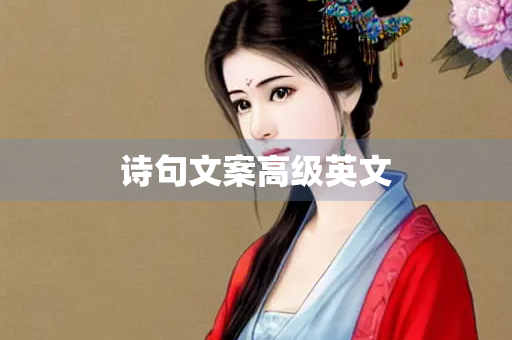
Introduction
Poetry has been an integral part of literature for centuries, and it continues to captivate readers with its rhythmic cadence and profound meaning. A single line of poetic verse can contain a wea
lth of emotion and insight, making it a powerful tool for expressing complex
ideas and experiences. In the realm of advertising and marketing, poems and poetic phrases have also become a popular way to convey brand messages and connect with consumers. In this article, we will explore the use of poetic verse in advertising and marketing and examine some examples of high-level English-language poetry used in advertising copy.
The Power of Poetic Verse in Advertising
In todays fast-paced world, consumers are bombarded with advertisements and marketing messages from every angle. It can be challenging for brands to stand out and make a connection with their target audience. One tactic that many companies are using is integrating poetic verse into their advertising campaigns. By incorporating elements of poetry into advertising copy, brands can create a sense of emotional resonance with their audience and differentiate themselves from competitors. Poetic language can evoke feelings of nostalgia, joy, passion, and empathy, among other emotions. Additionally, poetic phrases have a way of lodging themselves in our minds, making them memorable and impactful long after the initial exposure.
Examples of Poetic Language in Advertising
"I Wandered Lonely as a Cloud" for Expedia
Expedias 2021 ad campaign featured the line, "I wandered lonely as a cloud," which is the opening line of William Wordsworths famous poem "Daffodils." This poetic verse is used to communicate the sense of wanderlust and adventure that travel can bring us. By tapping into the emotional power of poetry, Expedia creates a connection with consumers who are looking for an escape from their everyday lives. The poetic language invites consumers to imagine themselves transcending their usual surroundings and experiencing something new and exciting.
"The Best a Man Can Get" for Gillette
Gillettes 1989 tagline "The best a man can get" is a timeless example of how poetic phrases can help brands create a powerful identity. The simple yet evocative language suggests that using Gillette products elevates a mans life experience, making him the best he can be. This tagline has been widely recognized and adopted by people all over the world, demonstrating the lasting impact that a well-chosen poetic phrase can have.
"Because Youre Worth It" by LOreal
LOreals 1973 tagline "Because youre worth it" is another noteworthy example of poetic language in advertising. This phrase is used to convey a sense of luxury and indulgence to consumers, and the use of poetry makes the message feel more personal and heartfelt. By writing copy that speaks directly to the consumers self-worth, LOreal creates an emotional connection with its target audience.
The Benefits of Using Poetic Language in Advertising
In addition to creating an emotional resonance with consumers, incorporating poetic language into advertising copy can also help brands in several other ways. For example, poetic phrases are often memorable and easy to recall, which can help boost brand recognition and recall. Additionally, poetic language can help to communicate complex ideas and emotions in a memorable and easily understood way. Finally, the use of poetry in advertising can help brands differentiate themselves from their competitors by creating a unique and standout brand identity.
Conclusion
In conclusion, the integration of poetic language and phrases into advertising copy is a powerful tool for brands to connect with their target audience and differentiate themselves from competitors. From the timeless tagline "The best a man can get" to LOreals heartfelt "Because youre worth it," poetic phrases have become an integral part of advertising and marketing language. By tapping into the emotional resonance of poetry, brands can create a lasting impact on consumers and help build a memorable and effective brand identity.

